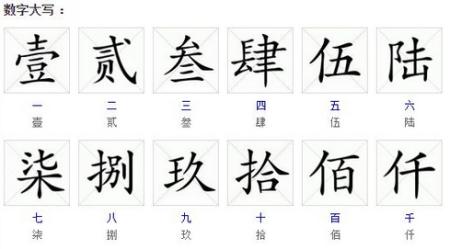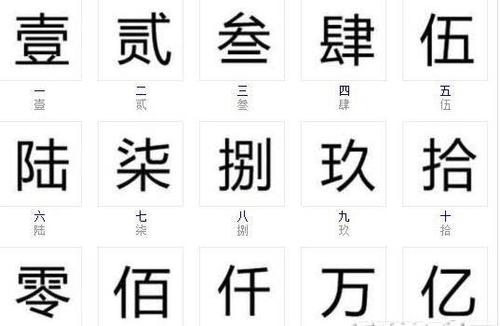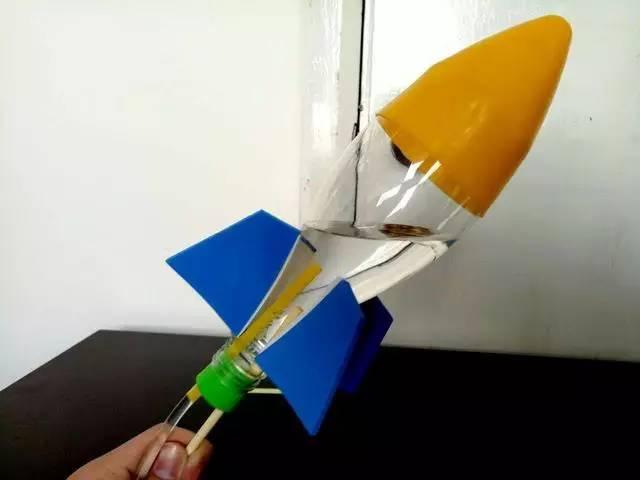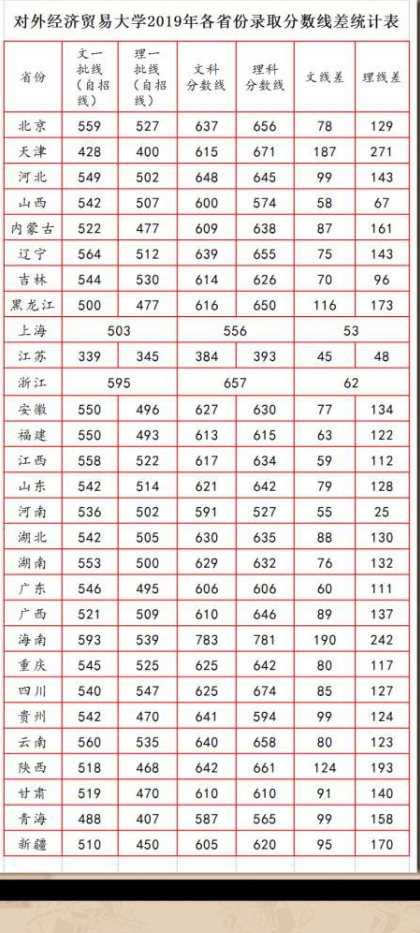高二英语上册必修五知识点重难点解析
高二英语上册必修五知识点重难点解析
上学期间,很多人都经常追着老师们要知识点吧,知识点也可以理解为考试时会涉及到的知识,也就是大纲的分支。还在苦恼没有知识点总结吗?以下是小编整理的高二英语上册必修五知识点重难点解析,欢迎阅读与收藏。

高二英语上册必修五知识点重难点解析 1
一、重点词汇总结
1. impression n. 印记;印象;感想;后接 of sb./ of sth./ on sb./ that 从句; My first impression of him was favorable.他给我的第一印象非常讨人喜欢。 I got the impression that they were unhappy about the situation. 他们给我的印象是他们对这个情形不是很开心。
知识拓展:impress v.给……留下深刻的印象;使铭记;使感动;常用结构有:impress sth. on/upon sb./impress sb. with sth.给……留下深刻的印象;使铭记; It impressed me that she remembered my name.令我佩服的是她记得我的名字。
2. remind v.提醒;使想起;常用结构有: remind sb. to do sth.提醒某人做某事;remind sb.+(that)/wh-从句 提醒某人……;使某人想起……;remind sb. about/of sth. 使某人想起或意识到……;提醒某人某事 Im sorry, but Ive forgotten your name, can you remind me? 很抱歉,我忘记你叫什么名字了,你能提醒一下吗?
You remind me of your father when you say that. 说到那的时候,我想起了你的父亲。
知识拓展:reminder n.提醒物;引起回忆的事物
3. constantly adv.始终;一直;重复不断地 Fashion is constantly changing.时尚总是日新月异。 知识拓展:constant adj.连续发生的;不断的;重复的;
4. previous adj.先前的;以往的;(时间上)稍前的;
No previous experience is necessary for this job. 以往的经验对这项工作不是很有必要。
I couldnt believe it when I heard the news.我听到这个消息的时候,我觉得简直令人那以置信。
I had only seen him the previous day. 我只在几天前见到过他。
知识拓展:previously adv. 先前的;早先
The building had previously been used as a hotel.这栋建筑早些时候被用作旅馆。
5. bend v.(bent bent)弯曲;使弯曲;弯腰;弯身;常用搭配有: bend ones mind/efforts
to sth. 致力于某事 bend sb.to sth. 迫使;说服 bend the truth 歪曲事实 Its hard to bend an iron bar. 把铁棒弄弯很不容易。
She bent her head and kissed her daughter. 她低下头吻了她的女儿。
6. press v. 压;按;推;挤;坚持;敦促 n. 报章杂志,新闻工作者,新闻界 She pressed a handkerchief to his nose. 她用手绢捂住鼻子。 She pressed down hard on the gas pedal. 她用力踩下油门踏板。 He is still pressing her claim for compensation. 他仍坚持索赔。 The press was/were not allowed to attend the trial. 庭审谢绝新闻采访。
7. switch n. & v. 用作名词表示“开关;转换”。用作动词表示“转换”。 She made the switch from full-time to part-time work when her first child was born. 她生第一个孩子的时候调整了工作,把全职工作转换成了兼职工作。 Press these two keys to switch between documents on screen. 按这两个键来转换屏幕上的文件。
I cant work next week, will you switch with me? 下周我不想上班,你能和我换一下班。
8. lack n. & v. 用作名词,表示:“缺乏;短缺”;用作动词,表示:“缺乏;短缺;没有;不足”。 a lack of food /money/skills 缺乏食物/金钱/技能
The trip was cancelled through lack of interest. 因为缺乏兴趣这次旅行被取消了。 He lacks confidence. 他缺乏信心。
知识拓展:lacking adj. 缺乏;没有;匮乏;不足
9. surroundings n.环境;surround v. 围绕;环绕 surrounding adj. 周围的`;附近的 Everyone likes to work in pleasant surroundings. 每个人都喜欢在愉快的环境中工作。
10. catch/gain/get sight of 发现,看出;lose sight of 看不见,忘记; lose ones sight 失明;at first sight 一见就;乍看起来;at (the) sight of 一看见就……;be in sight 看得见,在眼前;out of sight 看不见At first sight, the problem seems easy. 乍一看,这个问题似乎很简单。 At the sight of the teacher, the boy ran away. 小男孩一看到老师就跑了。 The island is still in sight. 小岛仍然在眼前。
Out of sight, out of mind. 眼不见,心不烦。
11. take up:to fill or use an amount of space or time 占用(时间);占据(空间);to learn to or start to do sth 开始做(某项工作);开始从事;to accept sth. that is offered or available 接受(建议或能得到的东西) The table takes up too much room. 这张桌子太占地儿。 They have taken up golf. 他们学起打高尔夫球来了。 She took up his offer of a drink. 他请她喝一杯,她接受了。 He takes up his duties next week. 他下周就要开始履行职责。
12. sweep up 打扫;清扫;横扫;涌向;快速地抱起 He swept up the baby up into his arms. 他一把将孩子抱进怀里
二、重点语法:
Worried about the journey, I was unsettled for the first few days. Well-known for their expertise, his parents’ company …..
Confused by the new surroundings, I was hit by the lack of fresh air. Exhausted, I slid into the bed and fell fast asleep. 过去分词作状语:过去分词作状语时,说明动作发生的背景或情况,其等同于一个状语从句。vt 过去分词作状语时与主句主语构成被动关系,表示被动和完成,vi 过去分词表示状态或动作的完成。
1. 作原因状语,等于as / since / because 引导从句
Moved by what she said ,we couldn’t help crying . = ( As we are moved by what she said …
2. 作时间状语,等于when 引导时间从句,如果分词表示的动作与谓语的动作同时发生,可在分词前加when/ while / until 等使时间意义更明确。 When heated , water can be changed into steam .
Seen from the hill ,the park looks very beautiful .= ( When the park is seen from the hill…
3. 作条件状语等于 if / whether 引导从句
Given more attention , the cabbages could have grown better .= ( If they have been given more attention ….
Compared with you , we still have a long way to go = ( If we are compared with you …
4. 作方式或伴随状语
The actress came in , followed by her fans . She sat by the window , lost in thought .
5. 作让步状语
Much tired ,he still kept on working .=(Although he was tired ,) he ….
6. 独立主格结构: 当分词的逻辑主语不是主句主语时,分词可以有自己独立的逻辑主语,这种结构称为独立主格结构。常用来表示伴随情况。 The boy rushed into the classroom , his face covered with sweat . All things considered ,your article is of great value than hers .
【同步练习题】
I. 单项选择。
1. In the past, people used to _____ on foot or by horse.
A. traveling B. traveled C. travel D. be travel
2. She’s still not used to _____ in China.
A. live B. the life C. lived D. lives
3. People will also take vacations _____ other planets.
A. in B. on C. at D. to
4. Will there still _____ banks in the future?
A. have B. need C. go to D. be
5. ____ do you think will shopping be like in the future?
A. How B. What C. Which D. Why
6. There will be great increase _____ farming.
A. about B. in C. from D. on
7. There will be personal web pages _____ the five senses.
A. have B. use C. with D. make
8. Where ______ in ten years’ time?
A. were you B. will you be C. are you D. have you been
9. Where ______ just now?
A. were you B. will you be C. are you going D. have you gone
10. What ______ I do first?
A. will B. am C. shall D. was
II. 完成句子。
1. 明天下午我们学校将有一场篮球赛。
There a basketball match tomorrow.
2. 我认为明天不会下雪。
I it tomorrow.
3. 今天下午和我去看好吗?
to see a film with me this afternoon?
4. 我们昨天在晚会上玩得很愉快。
We at the party yesterday.
5. 他们将到其他星球上度假。
They will on other planets.
6. 汤姆每天步行上学。
Tom every day.
【试题答案】
I. 1—5 CBBDB 6—10 BCBAC
II. 1. will be, in our school 2. don’t think, will snow 3. Would you like
4. enjoyed ourselves 5. take vacations 6. goes to school on foot
高二英语上册必修五知识点重难点解析 2
图片
Unit1 Great scientists
【重点词汇、短语】
1. put forward 提出
2. conclude 结束,结论
3. draw a conclusion 得出结论
4. defeat 打败
5. attend 照顾,护理,出席
6. expose to 使显露
7. cure 治愈,治疗
8. challenge 挑战
9. suspect 怀疑,被怀疑者
10. blame 责备
11. handle 柄,把手,处理,掌控
12. link 联系,连接
13. link to 将…和…连接
14. announce 宣布
15. contribute 捐献,贡献
16. apart from 除了
17. be strict with 对…严格
18. make sense 讲的通,有意义
19. spin 使旋转
20. reject 拒绝,抛弃
【重点句型】
1. What do you know about infectious diseases?
你对传染性疾病了解多少?
2. John Snow was a famous doctor in London – so expert, indeed, that he attended Queen Victoria as her personal physician.
约翰斯诺是伦敦一位著名的医生——他的确医术精湛,因而成为维多利亚女王的私人大夫。
3. But he became inspired when he thought about helping ordinary people exposed to cholera.
但当他一想到要帮助患了霍乱的普通老百姓,他就感到很振奋。
4. Neither its cause, nor its cure was understood.
人们既不知道它的病源,也不了解它的治疗方法。
5. He knew that cholera would never be controlled until its cause was found.
他知道,在找到病源之前,霍乱疫情是无法控制的。
6. The second suggested that people absorbed this disease into their bodies with their meals.
第二种看法是在吃饭的时候人们把这种病毒引入体内的。
7. John Snow suspected that the second theory was correct but he needed evidence.
约翰斯诺猜想第二个理论是正确的,但他需要证据。
8. It seemed that the water was to blame.
看来要归罪于饮用水了。
9. He immediately told the astonished people in Broad Street to remove the handle from the pump so that it could not be used.
约翰斯诺马上叫宽街上惊惶失措的老百姓拆掉水泵的把手,这样水泵就用不成了。
10. In another part of London, he found supporting evidence from two other deaths that were linked to the Broad Street outbreak.
在伦敦的另一个地区,他从两个与宽街爆发的霍乱有关联的死亡病例中又发现了有力证据。
【语法总结】
定语和表语
图片
一. 过去分词作表语
作表语用的过去分词表示主语的特点或所处的状态,相当于形容词,强调主谓关系;被动语态表示动作,强调动宾关系,绝大多数被动结构中的行为执行者还可以用by短语来表示。
1. 过去分词做表语与被动语态的差异:
The store is now closed.(系表)
The library is usually closed at 8:00 p.m. (被动)
2. 某些过去分词作表语,多半用来表示人物所处的心理状态或情感变化, 其主语主要是人。
这类过去分词通常为下列过去分词: delighted, devoted, discouraged , astonished, frightened, excited, inspired, encouraged, interested, contented, pleased, puzzled, satisfied, tired, worried, ect .
二. 过去分词作定语
作定语的过去分词相当于形容词,其逻辑主语就是它所修饰的名词。及物动词的过去分词作定语,既表被动又表完成;不及物动词的过去分词作定语,只表完成。
1. 过去分词用作定语,如果是单个的,置于其所修饰的名词之前。
We must adapt our thinking to the changed conditions.
我们必须使我们的思想适应改变了的情况。
2. 过去分词短语用作定语时,置于其所修饰的名词之后,其意义相当于一个定语从句,但较从句简洁,多用于书面语中。
The concert given by their friends was a success.
他们朋友举行的音乐会大为成功。
3. 过去分词短语有时也可用作非限制性定语,前后常有逗号。
The meeting,attended by over five thousand people,welcomed the great hero.
他们举行了欢迎英雄的大会,到会的有五千多人。
图片
Unit2 The United Kingdom
【重点词汇、短语】
1. consist 组成,在于,一致
2. consist of 由…组成
3. divide…into 把…分成
4. break away from 脱离
5. to one’s credit 在…的名下,为…带来荣誉
6. attract 吸引,引起注意
7. leave out 省去,遗漏,不考虑
8. plus 加上,和,正的
9. take the place of 代替
10. break down 损坏,破坏
11. arrange 安排
12. fold 折叠,对折
13. delight 快乐,高兴,喜悦
【重点句型】
1. How many countries does the UK consist of?
联合王国由几个国家组成?
2. You can easily clarify this question if you study British history.
如果你学习了英国历史,很容易就能弄清楚这个问题。
3. Happily this was accomplished without conflict when King James of Scotland became King of England and Wales as well.
令人高兴的是,这件事没有引起冲突就完成了,那时候苏格兰的詹姆斯国王也成为了英格兰和威尔士的国王。
4. However, the southern part of Ireland was unwilling and broke away to form its own government.
然而,爱尔兰的南部却不愿意而分离出去了,并建立了自己的政府。
5. To their credit the four countries do work together in some areas.
值得表扬的是,这四个国家的确在一些方面共同合作。
6. England is the largest of the four countries, and for convenience it is divided roughly into three zones.
在这四个国家中,英格兰最大,为了方便起见,它大致被分为了三个地区。
7. You must keep your eyes open if you are going to make your trip to the United Kingdom enjoyable and worthwhile.
如果你想要使你的英国之旅愉快又有意义,你就必须留心观察。
8. Worried about the time available, Zhang Pingyu had made a list of the sites she wanted to see in London.
由于担心时间不够,张萍玉早就把她想在伦敦参观的地点列了一张单子。
9. It looked splendid when first built.
刚建成的时候,它看起来真是金碧辉煌。
10. What interested her most was the longitude line.
她最感兴趣的'是那条经线。
【语法总结】
过去分词作宾补
过去分词作宾语补足语,说明宾语的状态或性质,过去分词所表示的动作和宾语有逻辑上的动宾关系。
一. 能接过去分词作宾语补足语的动词有三类:
1. 表示感觉或心理状态的动词,如:see, hear, feel, watch, notice;think(认为), consider, find等。
We saw the thief caught by the police.
我看见小偷被警察抓住了。
We thought the game lost.
我们认为球赛输了。
2. 表示“致使”或“保持某状态”意义的动词,如:make, get, have, keep, leave等。
Don’t leave such an important thing undone.
不要让这么重要的事没有人做。
He had his hat blown away on his way home.
在回家的路上他的帽子被吹掉了。
3. 表示“希望、要求、命令”等动词,如:want, wish, like, expect, order等。
I want the house white-washed before we move in.
我想要房子在我搬进去之前粉刷完。
He won’t like such questions discussed at the meeting.
他不喜欢在会上讨论这样的问题。
二. "with +宾语+过去分词"结构
"with +宾语+过去分词"结构中,过去分词用作介词with的宾语补足语。这一结构通常在句中作时间,方式,条件,原因等状语。例如:
1. The murderer was brought in,with his hands tied behind his back.凶手被带进来了,他的双手被绑在背后.(表方式)
2. With water heated,we can see the steam.水一被加热,我们就会看到水蒸气.(表条件)
3. With the matter settled,we all went home.事情得到解决,我们都回家了.(表原因)
图片
Unit3 Life in the Future
【重点词汇、短语】
1. impression 印象,感想
2. take up 拿起,开始,继续
3. constant 时常发生的,连续不断的
4. previous 在前的,早先的
5. guide 指导,向导
6. lack 缺乏,没有
7. lose sight of 看不见
8. sweep up 横扫
9. slide into 移动,溜进
10. optimistic 乐观的
11. speed up 加速
12. desert 沙漠
13. instant 瞬间,片刻
14. settlement 定居,解决
【重点句型】
1. I have to remind myself constantly that I am really in AD 3008.
我得不断提醒自己我真的到公元3008年了。
2. At first my new surroundings were difficult to tolerate.
开始的时候,新的环境让我难以忍受。
3. The air seemed thin, as though its combination of gases had little oxygen left.
空气似乎很稀薄,好像在混合的气体中剩下的氧气很少。
4. Hit by a lack of fresh air, my head ached.
由于缺乏新鲜空气,我感到头痛。
5. Soon I was back on my feet again and following him to collect a hovering carriage driven by computer.
很快我又重新振作起来,然后跟随他领取了一部由电脑控制的气垫车。
6. However, I lost sight of Wang Ping when we reached what looked like a large market because of too many carriages flying by in all directions.
可是,当我们到达一个看上去像大市场的地方时,由于太多车子朝四面八方飞奔,我看不见王平了。
7. He was swept up into the center of them.
他被卷入到这群车队中去了。
8. Arriving at a strange-looking house, he showed me into a large, bright clean room.
到了一幢看上去很奇怪的房子里,他把握带到一个明亮而清洁的大房间。
9. I found later that their leaves provided the room with much-needed oxygen.
后来我才发现,就是这些树的叶子为这栋房屋提供了最急需的氧气。
【语法总结】
过去分词作状语
过去分词短语作状语,可表示时间,原因,条件等,可发展为一个状语从句。过去分词作状语时其逻辑主语为主句的主语。
过去分词作状语时的具体用法:
1. 过去分词作时间状语相当于一个时间状语从句。例如:
Asked (When he was asked) what had happened, he lowered his head.
当他被问问题的时候,他低下了头。
2. 过去分词作原因状语相当于一个原因状语从句。例如:
Frightened (=Because / As she was frightened) by the tiger, the girl didnt dare to sleep alone.
因为害怕老虎, 这个女孩不敢单独睡觉。
3. 过去分词作条件状语相当于一个条件状语从句。例如:
Grown (If these seeds are grown) in rich soil, these seeds can grow fast.
如果种在肥沃的土壤里, 这些种子能长得很快。
4. 过去分词作让步状语相当于一个让步状语从句。例如:
Left (Although he was left) at home, John didnt feel afraid at all.
虽然John被单独留在房间里, 他一点都不害怕。
5. 过去分词作状语表示伴随动作或状态。例如:
The teacher entered the classroom, (and he was) followed by a group of students.
老师进入教室,后面跟着一帮学生。
上一篇:《犟龟》的教学反思(通用11篇)
下一篇:六年级语文上册第四单元复习要点






